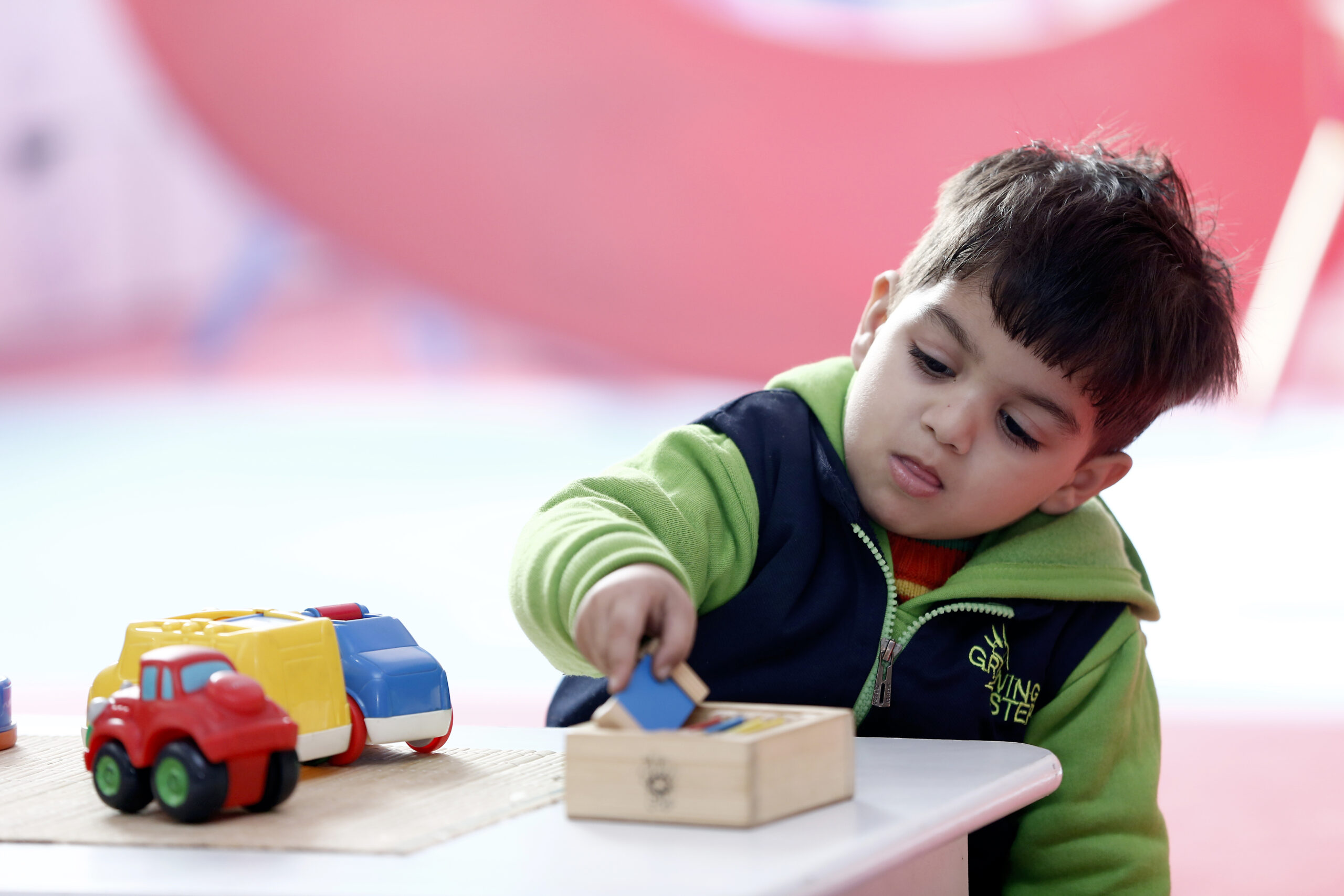Are you looking for a plays school near me or a kindergarten near me, but before that understand the important of right age.
The decision to send a child to preschool or kindergarten is one of the most significant parental milestones. While some parents may feel excited about this new chapter in their child’s life, others may be hesitant and unsure about the right age to enroll their child.
This decision is critical because it sets the foundation for their academic success and social skills development. When searching for “kindergarten near me,” parents should consider their child’s age and readiness for school. In this blog, we will explore why age should be considered before admitting a child to preschool or kindergarten.
The Importance of Age in Preschool and Kindergarten
Many studies have shown that age plays a crucial role in a child’s development, and this is especially true when it comes to preschool and kindergarten.
The age at which a child starts school can significantly impact their academic and social development. Younger children may not have the same level of maturity and readiness for learning as their older peers. This can lead to academic struggles and behavioral issues.
Academic Performance
Children who start preschool or kindergarten at a younger age may struggle academically because they have not yet developed the necessary skills and abilities.
For example, younger children may struggle with basic literacy and numeracy skills, such as letter recognition and counting. This can lead to frustration and a lack of confidence in their abilities.
On the other hand, older children who start school at the appropriate age are more likely to have developed these skills and are better equipped to handle the academic challenges they will face.
This can lead to higher academic performance and a greater likelihood of success in their future academic endeavors.
Social Development
A child’s social development is also affected by their age when they start school. Younger children may not have developed the social skills necessary to interact with their peers, such as sharing, taking turns, and resolving conflicts. This can lead to behavioral issues and difficulty making friends.
Conversely, older children are more likely to have developed these social skills and are better equipped to navigate social situations. They are also more likely to be emotionally mature, which can lead to better coping mechanisms and a greater ability to handle stress.
Kindergarten Readiness
Kindergarten readiness refers to the set of skills and abilities that a child should have before starting kindergarten. These skills include basic literacy, numeracy, and social and emotional development. When searching for “kindergarten near me,” parents should consider their child’s readiness for kindergarten and whether they have developed the necessary skills.
The Importance of Kindergarten Readiness
Children who are not kindergarten-ready may struggle academically and socially. This can lead to frustration, a lack of confidence, and difficulty adjusting to school.
Children who are kindergarten-ready, on the other hand, are more likely to have a positive experience in kindergarten and are more likely to succeed academically and socially.
How to Determine Kindergarten Readiness
There are several ways to determine if a child is kindergarten-ready. Parents can work with their child’s preschool teacher or use a kindergarten readiness checklist. This checklist includes skills such as the ability to:
- Recognize and name letters and numbers
- Write their name
- Follow directions
- Use scissors and glue
- Participate in group activities
- Show self-control and follow rules
If a child is struggling with any of these skills, parents may want to consider delaying their enrollment in kindergarten until they have had more time to develop these skills.
Age Requirements for Preschool and Kindergarten
Most preschool and kindergarten programs have age requirements that children must meet to enroll. These requirements are typically based on the child’s age by a specific date, such as September 1st of the year they will start school.
For example, a preschool may require that children be 3 or 4 years old by September 1st of the year they will start, while a kindergarten program may require that children be 5 years old by the same date.
It’s important for parents to pay attention to these age requirements when searching for “kindergarten near me.” Enrolling a child who does not meet the age requirements can lead to academic and social struggles.
Benefits of Delaying Enrollment
Delaying enrollment in preschool or kindergarten can have several benefits for children who may not be ready for school. These benefits include:
- More time to develop necessary skills: Delaying enrollment can give children more time to develop the necessary academic, social, and emotional skills they will need for school success.
- Greater academic and social success: Children who are delayed in enrollment may experience greater academic and social success in the long run, as they will have had more time to develop the skills they need.
- Reduced likelihood of retention: Delaying enrollment can also reduce the likelihood of retention in later grades. Children who struggle academically and socially in their early years of school may be at a higher risk of retention, which can have negative effects on their academic and emotional well-being.
Conclusion
So before searching for a plays school near me or a kindergarten near me, age should be considered before admitting a child to preschool or kindergarten.
Younger children may not have developed the necessary academic and social skills for school success, while older children are more likely to have these skills and be better equipped to handle the challenges of school.
When searching for “kindergarten near me,” parents should also consider their child’s readiness for kindergarten and whether they have developed the necessary skills.
Delaying enrollment can have several benefits for children who may not be ready for school, including greater academic and social success.
Ultimately, parents should carefully consider their child’s age and readiness when making the decision to enroll them in preschool or kindergarten.
